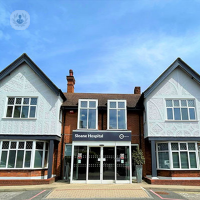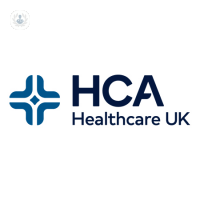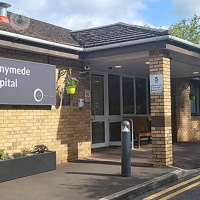
What is Crohn’s disease?
Crohn’s disease is a type of chronic inflammatory bowel disease (IBD) that can affect any part of the digestive tract from mouth to anus, but is most commonly found at the end of the small intestine, where this meets the colon (large intestine). It is characterised by inflammation, which is often severe and can be debilitating, and may extend through the whole width of the bowel wall.
Prognosis of Crohn’s disease
Crohn’s is a chronic condition, meaning long-term. There is currently no known cure for Crohn’s disease, although existing therapies make it manageable and can cause the disease to go into remission for years at a time. Flare-ups still occur periodically, however, and can make life difficult.
Symptoms of Crohn’s disease
When Crohn’s disease is active, typical symptoms include:
- Diarrhoea
- Abdominal pain (stomach aches, etc.)
- Blood in the stool
- Fatigue
- Weight loss
- Reduced appetite
- Mouth sores
- Fever
Symptoms can range from mild to severe, and usually develop gradually, but may come on in sudden attacks.
In severe cases, Crohn’s can also affect other parts of the body, including inflammation in the joints, the liver, the skin, and the eyes.
Crohn’s can start at any age, but symptoms usually first manifest in late childhood and early adulthood, with the majority of cases being diagnosed before the age of 30.
It often occurs in flare-ups, which may go into remission with treatment, but will flare up again weeks, months, or even years later.
What are the causes of Crohn’s disease?
The causes of Crohn’s disease are currently poorly understood, but a great deal of research into the illness is being carried across the world and experts are continuing to learn a lot about its mechanisms and possible causes. The leading theories are that it is caused by a combination of some of the following factors:
- Genetics – it is thought that some people are born with genes that predispose them to the development of Crohn’s
- Autoimmune – many experts believe that Crohn’s is an autoimmune disease; that is, the immune system mistakenly attacks cells in the digestive system as if they were invading bacteria or viruses.
- Gut bacteria and antigens – it is possible that certain bacteria or the antigens they produce may trigger the autoimmune response. Another theory is that an imbalance in gut bacteria may have a more direct effect on the development of Crohn’s. Current research indicates that, whatever the mechanism, bacteria seem to be relevant.
Other risk factors that may contribute include:
- Smoking
- Previous stomach bugs
- Living in an urban environment
- Family history, i.e. relatives that also have Crohn’s
Treatments for Crohn’s disease
While Crohn’s disease cannot be cured, there are treatments to reduce and control the symptoms. Sometimes, these treatments can be enough to send the disease into periods of remission. Typical treatment options include:
- Various anti-inflammatory medication, including certain steroids. The type prescribed will depend on the patient and on the severity and location of the inflammation in the digestive system.
- Immune system suppressors may be prescribed to reduce inflammation by targeting the immune system, which makes the substances that cause inflammation.
- Surgery may be the best option – by removing part of the tissue in the digestive tract, and reconnecting the healthy sections, the inflammation can be removed. However, this does not eliminate the chances of recurrence; surgery usually offers a temporary solution in severe cases of the disease.
Which type of specialist treats Crohn’s disease?
Gastroenterologists treat all kinds of inflammatory bowel disease, including Crohn’s disease and ulcerative colitis. Colorectal surgeons are usually responsible for performing operations to treat IBD.
06-13-2013 11-10-2023Crohn's disease
Ms Kat Baker - Colorectal surgery
Created on: 06-13-2013
Updated on: 11-10-2023
Edited by: Aoife Maguire

What is Crohn’s disease?
Crohn’s disease is a type of chronic inflammatory bowel disease (IBD) that can affect any part of the digestive tract from mouth to anus, but is most commonly found at the end of the small intestine, where this meets the colon (large intestine). It is characterised by inflammation, which is often severe and can be debilitating, and may extend through the whole width of the bowel wall.
Prognosis of Crohn’s disease
Crohn’s is a chronic condition, meaning long-term. There is currently no known cure for Crohn’s disease, although existing therapies make it manageable and can cause the disease to go into remission for years at a time. Flare-ups still occur periodically, however, and can make life difficult.
Symptoms of Crohn’s disease
When Crohn’s disease is active, typical symptoms include:
- Diarrhoea
- Abdominal pain (stomach aches, etc.)
- Blood in the stool
- Fatigue
- Weight loss
- Reduced appetite
- Mouth sores
- Fever
Symptoms can range from mild to severe, and usually develop gradually, but may come on in sudden attacks.
In severe cases, Crohn’s can also affect other parts of the body, including inflammation in the joints, the liver, the skin, and the eyes.
Crohn’s can start at any age, but symptoms usually first manifest in late childhood and early adulthood, with the majority of cases being diagnosed before the age of 30.
It often occurs in flare-ups, which may go into remission with treatment, but will flare up again weeks, months, or even years later.
What are the causes of Crohn’s disease?
The causes of Crohn’s disease are currently poorly understood, but a great deal of research into the illness is being carried across the world and experts are continuing to learn a lot about its mechanisms and possible causes. The leading theories are that it is caused by a combination of some of the following factors:
- Genetics – it is thought that some people are born with genes that predispose them to the development of Crohn’s
- Autoimmune – many experts believe that Crohn’s is an autoimmune disease; that is, the immune system mistakenly attacks cells in the digestive system as if they were invading bacteria or viruses.
- Gut bacteria and antigens – it is possible that certain bacteria or the antigens they produce may trigger the autoimmune response. Another theory is that an imbalance in gut bacteria may have a more direct effect on the development of Crohn’s. Current research indicates that, whatever the mechanism, bacteria seem to be relevant.
Other risk factors that may contribute include:
- Smoking
- Previous stomach bugs
- Living in an urban environment
- Family history, i.e. relatives that also have Crohn’s
Treatments for Crohn’s disease
While Crohn’s disease cannot be cured, there are treatments to reduce and control the symptoms. Sometimes, these treatments can be enough to send the disease into periods of remission. Typical treatment options include:
- Various anti-inflammatory medication, including certain steroids. The type prescribed will depend on the patient and on the severity and location of the inflammation in the digestive system.
- Immune system suppressors may be prescribed to reduce inflammation by targeting the immune system, which makes the substances that cause inflammation.
- Surgery may be the best option – by removing part of the tissue in the digestive tract, and reconnecting the healthy sections, the inflammation can be removed. However, this does not eliminate the chances of recurrence; surgery usually offers a temporary solution in severe cases of the disease.
Which type of specialist treats Crohn’s disease?
Gastroenterologists treat all kinds of inflammatory bowel disease, including Crohn’s disease and ulcerative colitis. Colorectal surgeons are usually responsible for performing operations to treat IBD.


Preparing for a colonoscopy
By Mr David McArthur
2024-11-20
A colonoscopy looks for changes inside your bowels and is a diagnostic procedure that can find what's causing symptoms in the area. There’s a certain amount of preparation required from patients. So, what's involved? Mr David McArthur, a leading general and colorectal surgeon in Birmingham, provides a detailed answer in this informative article. See more


Anal fissures: Symptoms, diagnosis and treatment
By Mr Vijitha Chandima Halahakoon
2024-11-20
Revered consultant general surgeon Mr Vijitha Chandima Halahakoon gives an expert guide to anal fissures, including diagnosis and treatment approaches. See more


IBD: Crohn's disease (CD) vs ulcerative colitis (UC)
By Dr Evangelos Russo
2024-11-20
Of the causes of inflammatory bowel disease, Crohn’s disease and ulcerative colitis are the two most common. Dr Evangelos Russo, an expert gastroenterologist, shares his expertise about these two conditions and clarifies how common they are, their symptoms, how doctors distinguish between the two, which is more serious, as well as the available treatments for both. See more


The importance of early diagnosis for inflammatory bowel disease and bowel cancer
By Dr Polychronis Pavlidis
2024-11-20
Toilet talk generally isn’t considered polite conversation. However, keeping silent about your bowel health can prove to be dangerous. Too often, those suffering from gastroenterological conditions such as inflammatory bowel diseases (IBD) or bowel cancer are diagnosed late during more advanced stages, which can have an impact on disease prognosis. Dr Polychronis Pavlidis, consultant gastroenterologist and expert in all things gastrointestinal, stresses the importance of early diagnosis for these conditions. See more
Experts in Crohn's disease
-
Dr Peter Irving
GastroenterologyExpert in:
- Inflammatory bowel disease (IBD)
- Crohn's disease
- Ulcerative colitis
- Irritable bowel syndrome (IBS)
- Gastroscopy
- Colonoscopy
-
Mr Richard Lovegrove
Colorectal surgeryExpert in:
- Ulcerative colitis
- Colorectal cancer
- Crohn's disease
- Anal fistula
- Piles (haemorrhoids)
- Colonoscopy
-
Dr Shameer Mehta
GastroenterologyExpert in:
- Radiotherapy side effects
- Inflammatory bowel disease (IBD)
- Clinical nutrition
- Crohn's disease
- Ulcerative colitis
- Intestinal failure
-
Dr Farooq Rahman
GastroenterologyExpert in:
- Inflammatory bowel disease (IBD)
- Crohn's disease
- Ulcerative colitis
- Irritable bowel syndrome (IBS)
- Colonoscopy
- Coeliac disease
-
Dr Derek Chan
GastroenterologyExpert in:
- Acid reflux
- Inflammatory bowel disease (IBD)
- Abdominal pain
- Irritable bowel syndrome (IBS)
- Coeliac disease
- Crohn's disease
- See all

The Sloane Hospital - part of Circle Health Group
The Sloane Hospital - part of Circle Health Group
125 Albemarle Rd, Beckenham BR3 5HS
No existe teléfono en el centro.
By using the telephone number provided by TOP DOCTORS, you automatically agree to let us use your phone number for statistical and commercial purposes. For further information, read our Privacy Policy
Top Doctors

HCA UK at The Shard
HCA UK at The Shard
32 St Thomas Street, SE1 9BS
No existe teléfono en el centro.
By using the telephone number provided by TOP DOCTORS, you automatically agree to let us use your phone number for statistical and commercial purposes. For further information, read our Privacy Policy
Top Doctors

The Runnymede Hospital - part of Circle Health Group
The Runnymede Hospital - part of Circle Health Group
Guildford Street, Ottershaw, Lyne, Chertsey KT16 0RQ
No existe teléfono en el centro.
By using the telephone number provided by TOP DOCTORS, you automatically agree to let us use your phone number for statistical and commercial purposes. For further information, read our Privacy Policy
Top Doctors
-
The Sloane Hospital - part of Circle Health Group
125 Albemarle Rd, Beckenham BR3 5HS , South LondonExpert in:
- Abdominal ultrasound
- Vascular Surgery
- Cardiology
- Colorectal surgery
- Endocrine Surgery
- General Surgery
-
HCA UK at The Shard
32 St Thomas Street, SE1 9BS, Central LondonExpert in:
- Vascular Surgery
- Head and neck cancer
- Breast Cancer
- Orthopaedic surgery
- Thoracic Surgery
- Cancer screening clinic
-
The Runnymede Hospital - part of Circle Health Group
Guildford Street, Ottershaw, Lyne, Chertsey KT16 0RQ, ChertseyExpert in:
- Cardiology
- Hand surgery
- General Surgery
- Maxillofacial Surgery
- Oral surgery
- Orthopaedic surgery
- See all
- Most viewed diseases, medical tests, and treatments
- Migraine
- Paediatric rheumatology
- Autoimmune diseases
- Joint pain
- Child nutrition
- Nutrition
- Weight loss injections
- Nipple discharge
- Abdominal pain
- Endovenous laser treatment (EVLA)








